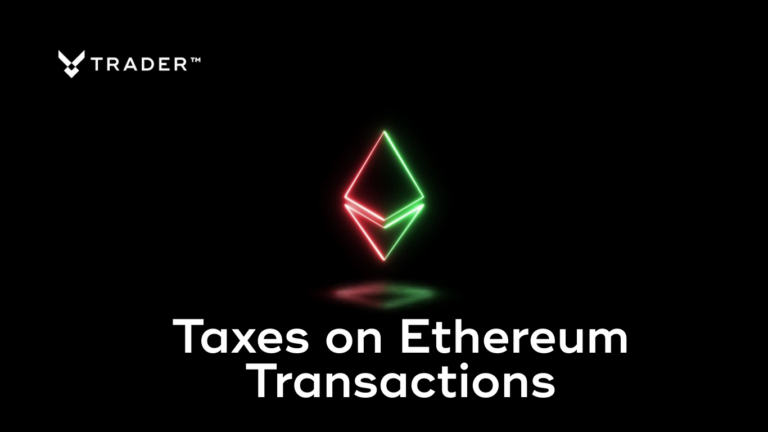Taxes on Ethereum Transactions in 2025: The Rules, the Traps, and the Edge
I still remember a sleepless December in 2021, you know the one—when ETH gas spiked, NFTs were flying, and my tax spreadsheet looked like modern art. I swore I’d never let my records get that messy again. Good thing, because 2025 changed the playbook. Between new broker reporting, wallet-by-wallet basis rules, and staking guidance, taxes on Ethereum aren’t a mystery anymore… but they’re unforgiving if you wing it.
Anyway—let’s get you dialed in.
Why this matters now
Two big shifts landed:
• Brokers must start sending 1099-DA forms for digital asset sales starting with transactions on or after January 1, 2025 (you’ll receive them during the 2026 filing season). Basis reporting phases in for certain transactions starting in 2026. Translation: the IRS visibility is going way up.
• You can no longer treat all your ETH across wallets as one big vat. The rules push you to track cost basis by wallet/account, with a safe harbor to allocate your pre-2025 “unused basis” as of January 1, 2025.
If you traded through the 2024 Bitcoin halving and rode the usual crypto cycles into 2025, you probably realized something: volatility is great for opportunity—and brutal for recordkeeping. Don’t let taxes become your hidden drawdown.
What counts as a taxable Ethereum transaction?
Short version: the IRS treats digital assets as property. Every time you dispose of ETH (sell it, swap it, spend it), you trigger a capital gain or loss. Some income-like events hit ordinary income first (then capital gains when you later dispose of the tokens).
Here’s the cheat sheet I wish my friend had before he “farm-hopped” DeFi all summer and called me in a panic the next April:
Common Ethereum actions and U.S. tax treatment (2025)
ETH action | What triggers tax | How it’s taxed | Pro tip
—————————————-
Buy ETH with USD | No | N/A | Fees paid increase your basis. Keep the confirmations.
Swap ETH→ERC-20 (e.g., DAI) | Yes | Capital gain/loss on the ETH you gave up | Treat swaps like sales: FMV received minus basis.
Spend ETH on an NFT or goods | Yes | Capital gain/loss on ETH used; plus sales/use tax may apply | Spending is a disposition. Track the ETH’s basis.
Stake ETH (direct or via exchange) | Yes, when rewards are under your control | Ordinary income at FMV on receipt; later disposal → capital gain/loss | “Dominion and control” is the key. Time-stamp reward credits.
Liquid staking tokens (LSTs) like stETH | Usually | Exchanging ETH for an LST can be a taxable swap; rewards are income | Check your platform’s mechanics and your statements.
Airdrops/hard forks | Sometimes | Ordinary income when you can control the new tokens | If you can’t access it yet, generally no income… yet.
Provide/withdraw LP in AMMs | Often | Can be taxable when token composition changes | Track cost basis of LP tokens and any rewards.
Wrap/unwrap ETH (WETH) | Generally non-taxable (form-change) | N/A | Still, note it for reconciliation across wallets.
Bridge ETH L1↔L2 | Usually non-taxable self-transfer | N/A | Gas fees are basis adjustments or reduce proceeds later.
Note: Broker reporting exceptions for some of these (like staking, LP, wrapping) don’t change whether they’re taxable; they just change what your broker reports to the IRS.
The rate that actually hits your return
• Hold ETH more than a year? Long-term capital gains rates stay at 0%, 15%, or 20% in 2025, depending on your income. High earners may owe the 3.8% Net Investment Income Tax on top.
• One year or less? Short-term gains are taxed at ordinary income rates.
• Staking rewards are ordinary income when you receive control of them. When you eventually sell the rewarded ETH, you also calculate a capital gain/loss from the income-based cost basis forward.
I learned this the expensive way in 2022—harvested losses aggressively in a bear, then forgot that my staking rewards had reset my basis higher on some lots. Gains looked tiny on paper; taxes said otherwise. Don’t be me.
Fees, gas, and your basis (yes, the details matter)
• Fees on acquisition add to basis.
• Fees on sale reduce proceeds.
• For crypto-to-crypto swaps, current rules allocate digital-asset transaction costs across the sale and the purchase side.
• And here’s the kicker in 2025: you’re tracking by wallet/account. If you used a “universal” method in prior years, the safe harbor lets you allocate unused basis to the specific wallets you actually hold as of January 1, 2025. Do it before your first 2025 disposition or by the time you file your 2025 return—whichever comes first.
Not gonna lie: that safe-harbor allocation takes an afternoon. Coffee helps.
Do wash-sale rules apply to ETH in 2025?
As of August 19, 2025, the classic 30-day wash-sale rule still doesn’t apply to crypto. That’s why tax-loss harvesting has been so effective in digital assets. Caveats:
• The “no wash sale” status could change in future legislation; keep an eye on it.
• The economic substance doctrine still exists. If you’re manufacturing losses with no real change in position, that’s risky. Be smart.
My playbook? If I’m harvesting, I rotate into a correlated asset or shift across wallets/strategies with real risk differences. It’s not perfect, but it’s defensible.
The 1099-DA era: what changes for you
• You’ll start getting 1099-DA forms for 2025 sales from custodial brokers (exchanges that hold your assets). That should make reconciling proceeds easier.
• Basis reporting phases in for certain transactions in 2026, so by the 2027 filing season many investors will see cost basis included.
• DeFi and non-custodial activity? Different timeline. Don’t assume the form you receive tells your whole story. It usually won’t.
Bottom line: the IRS will see more. You should, too.
Strategies to legally minimize ETH taxes
• Use the cycles. Historically, BTC halving events compress supply and can drive narrative waves in crypto cycles. If you rebalance into strength and harvest into weakness, your 12-month clocks and realized gains look better over full cycles.
• If you’re hedging inflation with stablecoins:
• Park profits in reputable, fiat-backed stablecoins to reduce volatility.
• Remember: stablecoin trades are still dispositions; keep records.
• Consider short-term T-bills in a brokerage for yield with 1099 simplicity.
• Staking smart:
• Track reward timestamps and FMV on receipt (that’s income).
• Consider compounding strategies that won’t leave you with dozens of micro-lots you can’t identify later.
• Specific ID where you can. FIFO is default if you don’t identify lots. Specific ID (HIFO/optimal tax lots) may reduce taxable gains—but you need timely, defensible records.
• Automate reconciliation. Seriously. I pipe my exchange CSVs, on-chain wallets, and DeFi positions into a tracker, then sanity-check against 1099-DA when it arrives. That’s why I lean on tools like vtrader.io to keep wallet-by-wallet cost basis straight and flag mismatches before my CPA does.
Quick wins (from my desk to yours)
• Export your 2024–2025 trade history now and lock it away.
• Do the safe-harbor basis allocation for January 1, 2025 holdings; document your method.
• Use one “primary” exchange for most taxable disposals in 2025+ to simplify 1099-DA matching.
• Set quarterly estimated tax reminders if you’re realizing gains.
• Keep a simple “ETH tax log”:
• Date/time, wallet, action, quantity, USD FMV, fees, and notes (staking, LP, bridge).
FAQ-style hits
Are ETH gas fees deductible?
They’re not “deductions” in the itemized sense, but they affect your gain/loss. Gas used to acquire ETH increases basis; gas on a sale reduces proceeds. For swaps, transaction costs are allocated between the sold and acquired assets.
Is wrapping ETH taxable?
Typically no—it’s a change in form, not substance. Still record it so your wallet-by-wallet counts tie.
How should I track DeFi swaps and LP positions?
Treat token-for-token swaps as dispositions. LP adds/removals can be taxable because you’re exchanging assets; rewards are income. Keep every LP token ID, pool composition, and reward detail.
What about the 1040 “digital assets” question?
Everyone must answer it. If you did any crypto activity—staking, swaps, sales, rewards—check “Yes.”
Bringing it home
Ethereum taxes in 2025 aren’t about guessing—they’re about systems. The IRS is rolling in 1099-DA, pushing wallet-level basis, and clarifying where income starts (hello, staking). Your edge is simple: trade with tax outcomes in mind, keep wallet-by-wallet records, and reconcile forms before April. Do that, and you can focus on what actually moves the needle—position sizing, cycle timing, and clean risk.
If you’ve ever stared at a year-end PnL and felt that gut punch—yeah, I’ve been there. Get organized now. Use software. I’ve made vtrader.io part of my process so April feels like a formality, not a fire drill.
Sources:
• https://www.irs.gov/newsroom/final-regulations-and-related-irs-guidance-for-reporting-by-brokers-on-sales-and-exchanges-of-digital-assets
• https://www.irs.gov/instructions/i1099da
• https://www.irs.gov/irb/2023-33_IRB
• https://www.irs.gov/irb/2024-31_irb
• https://www.irs.gov/irb/2024-29_IRB
• https://www.irs.gov/filing/digital-assets
• https://www.irs.gov/newsroom/irs-updates-to-question-on-digital-assets-taxpayers-should-continue-to-report-all-digital-asset-income
• https://www.kiplinger.com/taxes/new-irs-long-term-capital-gains-tax-thresholds
• https://www.wsj.com/personal-finance/taxes/irs-tax-changes-2024-2025-guide-4372f89c
• https://tax.thomsonreuters.com/en/insights/white-papers/a-comprehensive-guide-to-navigating-the-new-irs-digital-asset-reporting-regulations
• https://www.reuters.com/technology/us-treasury-finalizes-new-crypto-tax-reporting-rules-2024-06-28/

Steve Gregory is a lawyer in the United States who specializes in licensing for cryptocurrency companies and products. Steve began his career as an attorney in 2015 but made the switch to working in cryptocurrency full time shortly after joining the original team at Gemini Trust Company, an early cryptocurrency exchange based in New York City. Steve then joined CEX.io and was able to launch their regulated US-based cryptocurrency. Steve then went on to become the CEO at currency.com when he ran for four years and was able to lead currency.com to being fully acquired in 2025.


